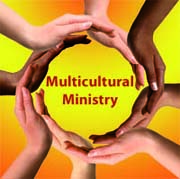13 Ways to Prepare Your Congregation to Welcome Other Cultures
 The success of your Multicultural Ministry begins with preparing your people. You are entering uncharted waters and your people want to know what lies ahead.
The success of your Multicultural Ministry begins with preparing your people. You are entering uncharted waters and your people want to know what lies ahead.
People need time to adjust to new ministry initiatives. Expect apprehension.
Recognize that faith is not constant. It is likely that you have members that are in various stages of their individual faith journeys. Faith wavers with age and circumstance. Faith is precious and needs to be nurtured and protected.
- Youngest children have the strongest faith. They rely on everyone else for survival.
- Some are confident of their value to the church. They are healthy and prosperous enough that they know their position in the “society” of church is secure.
- Others may still feel like newcomers and be unsure of their ability to contribute to the ministry. They are weighing what their investment should be in a new direction. They haven’t quite grasped the old direction!
- Others may feel threatened. Once they were strong leaders in the church but are beginning to step back. Your congregation’s new direction may have them wondering if there will still be a church they recognize when they most need comfort and support.
Change must be implemented in ways that are not threatening and which can be sustained. Unless you want your congregation to become a revolving door of new members — attracted by a fleeting special initiative and gone with the next new initiative — you must prepare your congregation.
Here are important steps to take as you begin your outreach.
- Make sure your pastor is comfortable with the outreach initiative. Ask what help or additional training he or she may need. There are few pastors trained in multicultural ministry. It is as new to them as it is to many lay people.
- Work with your governing board long before you take plans to the congregation. You need their full support.
- Involve as many as possible in creating a plan. When people are part of change they have less to fear.
- Get support staff on board. Your church musicians may have to learn some new music. Your visiting team may need coaching.
- Remind members of scriptures that charge us to minister to all the world. Hold a special Bible Study. If people won’t come to a Bible Study, build the elements of the Bible Study into worship and other areas of church life.
- Address fears and concerns. Make sure that your current members know that their spiritual needs are still important.
- Educate. As you develop your plans and decide what groups in your community you hope to serve, help your members learn about the cultures you will encounter. Invite someone to speak. Recommend books. Point members to helpful web sites. Learn music from other cultures. Have a congregational dinner featuring food from the culture. Take whatever time you need to prepare your current members for change. (The children’s sermon is a good tool for change. Everyone is listening while you talk to the children! Teach the children and you will teach the adults.)
- Do not abandon your current culture. Make sure favorite hymns and observances remain prominent in the life of your congregation. Add new things. Don’t replace old things. As stated before, you will know when to mothball the old. No need to force it.
- Make it fun. If a foreign language is involved, teach a new phrase a week. You can make this part of your Facebook and Twitter initiatives.
- Answer questions immediately. Address negative comments immediately. Failure to do this can scuttle your mission project and allow discontent to spread. If you use Social Media, monitor it and respond to both positive and negative comments. Supporters will be encouraged. Those with doubts will know they are being heard.
- Make friends with leaders in the culture you hope to serve. Invite them to participate in a project, so that members make friends a few at a time.
- Use inclusive language at all times. Remember as you use Social Media that everybody can take part — your existing congregation and the people you want to reach. It will benefit your mission if you keep your multicultural outreach from becoming “us and them.”
- Love one another.
